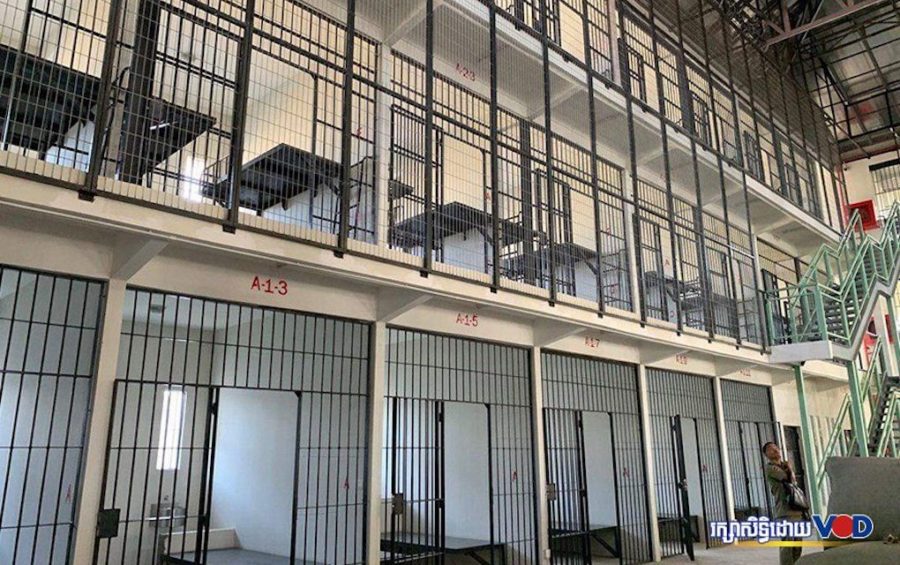A new prison building that was to have been reserved for rich inmates willing to pay to be detained in relative comfort has been put under government control, the Interior Ministry’s prisons department spokesman said.
The spokesman said he did not know how much the government had paid for the building. Kunn Rekon, the Malaysian firm behind the project, initially announced it would cost $4 million to build.
The building, located on the compound of Phnom Penh’s Prey Sar prison, began construction in May 2017 amid controversy over its pay-to-stay proposal.
Its 400-prisoner capacity was touted as a way to reduce overcrowding at Prey Sar, which last year held almost 7,000 inmates despite having a capacity of about 2,000.
The population of Cambodia’s 28 prisons has ballooned from about 28,000 at the end of 2017 to more than 36,000 last month, according to prisons department statistics.
Nuth Savna, the department’s spokesman, said this week that the building had been put under the management of PJ Prison, another prison on the other side of the capital, based on a decision by Interior Minister Sar Kheng after the construction was finished earlier this month.
“We are testing the infrastructure and technical equipment in it. If it works well, we can put it to use. So at this time, I cannot say when the building will be able to be used,” Savna said, clarifying that detainees would not be charged to stay there.
Soeng Senkaruna, spokesman for rights group Adhoc, said he welcomed the prison’s transfer to government control, but it was relatively small and would not do much to alleviate overcrowding.
He added that rich and poor prisoners should be treated equally.
Cambodian prisons have reportedly provided perks to prisoners willing to give money to guards.
“The standard for managing some detainees — the rich, the powerful and those with connections — are different from other detainees,” Senkaruna said. “We want to see equal enforcement no matter who they are.”
The government’s crackdown on drug abuse as well as suspects being jailed for long periods of time while awaiting trial were behind the worsening overcrowding of prisons, he added.
A report by rights group Licadho last year said 37 percent of inmates in 18 monitored prisons were in pretrial detention.
(Translated and edited from the original article on VOD Khmer)













